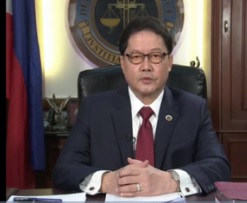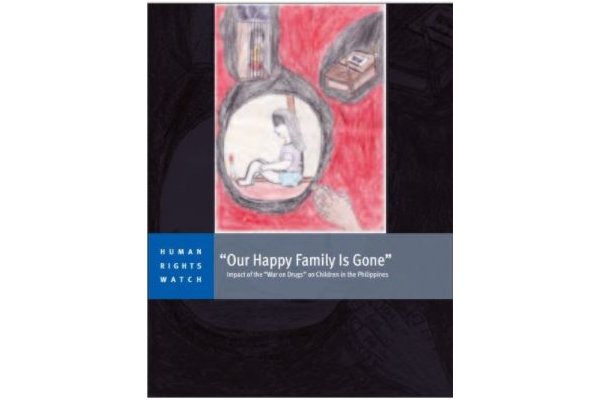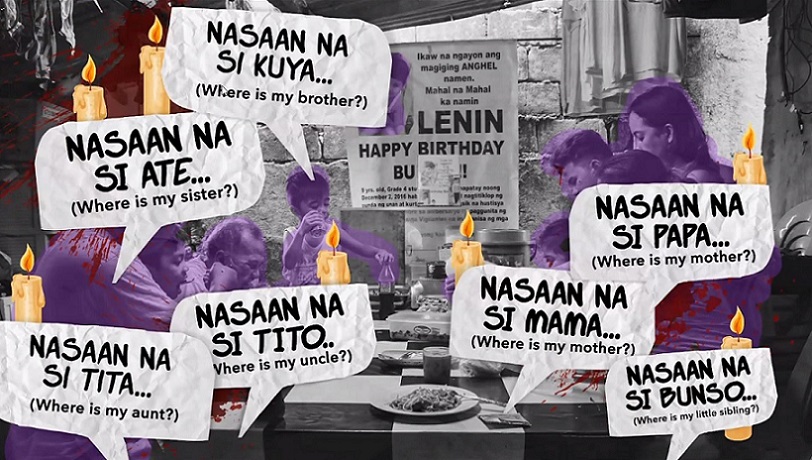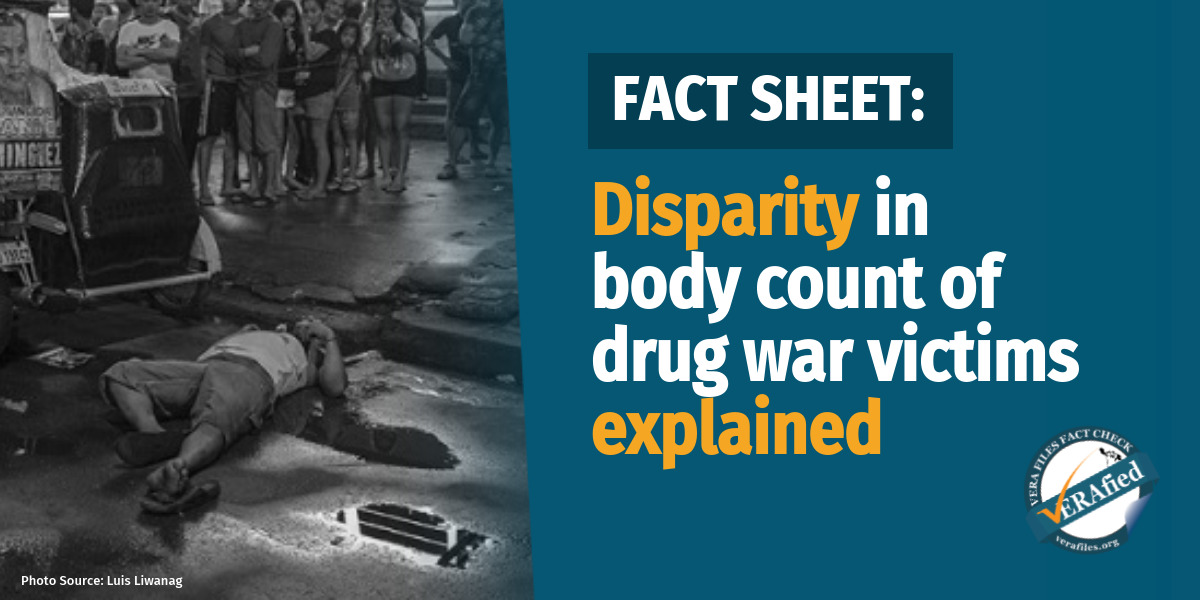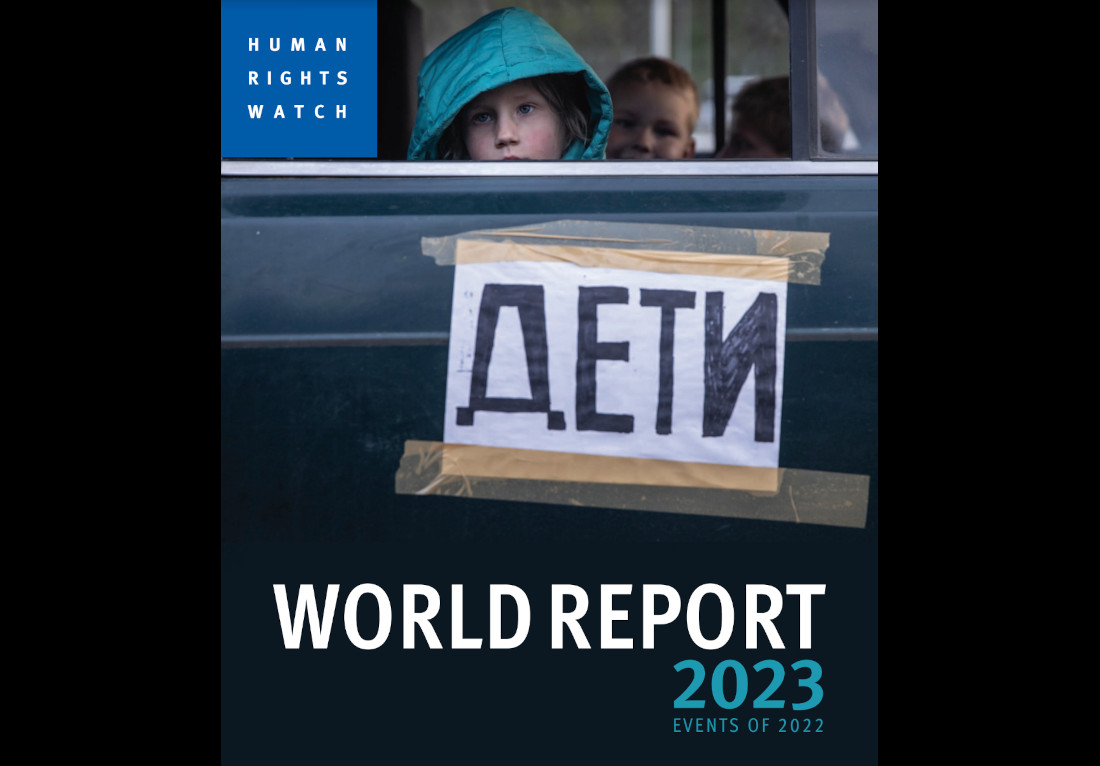Human Rights Watch (HRW) has criticized the Philippine government for trying to dissuade independent, international efforts to investigate thousands of unsolved drug-related deaths in the country by creating a “ruse” and “flawed” inter-agency review panel.
“At a time when the Philippines needs a serious impartial investigation into ‘drug war’ killings, the panel is nothing more than a ruse to shield the country from international scrutiny,” the group said in a statement.

UN High Commissioner for Human Rights Michele Bachelet doing here presentation at the UNHRC 44th session in Geneva
The Philippines came under scrutiny during the 44th session of the United Nations Human Rights Council in Geneva on Tuesday, June 30, as UN High Commissioner for Human Rights Michele Bachelet presented the stark findings of her office’s report on the situation in the country which the council requested in 2019.
Several countries called for accountability for the “widespread abuses” against drug suspects, political activists, indigenous peoples, and journalists, among others, as they concurred with the findings of High Commissioner’s Office.China and other countries close to President Rodrigo Duterte, however, rejected the report and maintained that only “constructive dialogue” can address human rights issues in the country.
Justice Secretary Menardo Guevarra, during his turn to speak, announced the creation of a review panel to be led by his office. Justice Undersecretary and Spokesperson Markk Perete said the panel started working as early as February.
Guevarra said the body, which he described as “external” to the Philippine National Police, “is quietly conducting a judicious review” of 5,655 deaths due to anti-illegal operations that some human rights groups claim to be three times the government’s figures.
He said the panel would serve as a mechanism to prevent cases of impunity and “re-evaluate cases and examine the propriety of re-investigating them or filing appropriate charges against erring law enforcement officers.”
The Justice secretary further said the panel will engage with families of the victims and provide them with legal options and assistance in prosecuting law enforcers “who have overstepped legal bounds in their operations.” The findings of the review panel will be presented in November, he said.
“Claims that there is impunity or near-impunity in the country find no anchor in a system that provides every avenue to examine, establish and pursue a claim of wrongdoing by a state actor, if such claim is substantiated with facts,” he told the assembly.
Guevarra’s announcement followed the presentation of Bachelet on her office’s comprehensive report into human right violations in the country, which was mandated by the Iceland-backed resolution 41/2 in 2019. Bachelet’s office found that there is a “widespread and systematic killings” in the country and called for an independent, impartial investigation on human rights abuses.
However, the HRW noted the panel is “deeply flawed,” noting that it is composed of offices that are “directly implicated” in the government’s bloody “war on drugs.” It said: “it will be led by the Department of Justice and will have among its members the very agencies – notably the police and the Philippine Drug Enforcement Agency –directly implicated in the “drug war.”
“Moreover, any panel review will be evaluated and finalized by other government agencies involved in the anti-drug campaign, including the Department of the Interior and Local Government and the Department of Justice,” it added.
HRW said that member countries of the HRC “should not be fooled” as the panel is just a ‘naked attempt” to discourage the council from conducting a probe into the “drug war killings and related violations.”
Meanwhile, local rights group Ecumenical Voice for Human Rights and Peace in the Philippines (EcuVoice) warned the government “cannot just simply throw all consistent and persistent accounts of violations and frustrations with domestic remedies” like the review panel.
“Saccharine statements at appeasing widespread condemnation and creating yet another government body to address unabated impunity and support self-serving claims that domestic remedies are adequate, prompt and credible become soporific in the face of previous experience and present realities,” the group said.
EcuVoice said: “We reiterate our call for an independent investigation mechanism of the UN Human Rights Council to look into the human rights situation in the Philippines, as among the options for international accountability measures recommended by Ms. Bachelet.”
In her final remarks at the interactive dialogue of the HRC, Bachelet said the government’s review panel is hoped to be heading in “the right direction” which must involve the Commission on Human Rights (CHR) and civil society groups “in that process.” She said: “We hope — we have heard the Secretary of Justice announcement – and we hope this will kick start the process that will begin to unblock the many obstacles in the system for accountability for serious human rights violations in the Philippines.”
But she said “in terms of the credibility of investigations – national and international – what I am calling is for independent, impartial, effective, and credible investigations.” She said the council must continue to monitor the situation in the country “and to look for clear, measurable outcome.”
Meanwhile, CHR Commissioner Karen Gomez-Dumpit said the body is ready to collaborate with the DOJ-led panel. “We urge that this measure be implemented within the technical cooperation framework offered by the Office of the High Commissioner for Human Rights,” she said. She also urged the government to “accept” that the killings are widespread and systematic as it is crucial “for this review to be credible.”
“It must also not confine the coverage of this review to exclude other victims of the anti-drug campaign and must look beyond government’s own numbers. It must demonstrate full transparency and cooperation with independent mechanisms including the Commission on Human Rights,” she said.
Crimes against humanity in the context of war on drugs of the Duterte government is the subject of the ongoing preliminary examination of the International Criminal Court (ICC) involving Duterte, some police and government officials. ICC prosecutor Fatou Bensouda commenced with the initial probe in 2018 and is expected to finish it in late 2020.
Once she finished the probe, Bensouda may ask the ICC judges to issue an arrest warrant or summons for suspects to appear before the Netherlands-based court.
